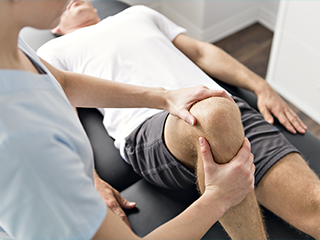
Australia is an ageing population and allied health (the disciplines that complement general practice such as physiotherapy, chiropractic and osteopathy) is increasingly important both as a treatment and as preventive action.
Investing in a health-focused franchise allows prospective business owners to buy into technical and business expertise.
According to IBISWorld, which produces industry-specific reports, there are some key observations of the physiotherapy sector which is outperforming the economy, notably the specialisation of customer segments in a competitive market.
IBISWorld has pinpointed ageing, women, sport, orthopaedic and paediatric treatments as strong areas for specialised practice.
Allied services help boost already good profit margins, the latest report Physiotherapy Services in Australia, July 2018, suggests.
The nature of the service-focused business means economies of scale are irrelevant to physiotherapy firms, the report concludes.
What is relevant is greater work flexibility and the cost deterrent – there’s currently no Medicare rebate available. And while the sector is competitive, there’s been little practice consolidation.
Four major players in this sector each have just 1–2 per cent each of the market share – one of these businesses is Back In Motion.
Founder and director Jason Smith suggests that the IBISWorld report doesn’t pick up the pulse of the industry. There’s no doubt that ageing is the landscape of allied health but in reality, the biggest driver is technology, he says.
“Technology is one of the big drivers in the next five to 10 years. We are putting a disproportionate investment into technology; tech is the dry creek bed soaking up every cent, finding new and better ways to deliver services with agility.”
Smith is so committed to tech investment that the business acquired a small IT company along with a staff of five full time coders.
“This allows us to build the programs we need and get big data to better inform clinical services. These are the changing contours of our business.”
Smith has deliberated on how best the business can shape itself to the future, and found the solution in a hub and spoke model that allows for flagship stores and versatile delivery of services.
Another is a shift or trend to patient-centred care. Not yet implemented but coming fast is home care – a clearly disruptive model because it will displace some of the heavy fixed costs of running locations.
But physiotherapy is heavily dependent on health funds for payment of client treatments and they are yet to adapt to the changing market; likewise, insurers and government payers have not created the policy to deal with this, he adds.
At-home care may be the future but it’s a costly process right now, says Smith.
“It’s very hard to get the price point right. It’s much more expensive to deliver at home than in a practice, you lose efficiency. Whoever really innovates home care will have to have big wallets. The price point is tough. Unless a third party pays the premium, we’re going to be stuck for a while.”
Smith is sanguine about how the Back In Motion business will expand. He is considering a diversification into allied health to provide a more holistic offering for clients, including podiatry, osteopathy and chiropractic services. Right now he sees the brand as a leader in the physiotherapy market.
“We are bigger in terms of revenue and footprint than the other three combined,” he says.
For the financial year 2018 Back In Motion recorded 12 per cent organic growth and a comparable rise is predicted for this year’s results. Smith expects to see a further eight practices operating in Australia and four more in New Zealand within the next 12 months.
Accompanying market leadership is interest from investors, who see potential for aggregating some of the practices. But Smith is wary of corporatisation.
Franchising works as a way to attract more capital to scale and have liquidity and exit options, he says. “We are raising capital and building scale through the group,” he says.
There are nearly 50 practices in the network, who benefit from the back-end systems available in a full-service franchise, including an in-house accounting team that manages invoices, bills and payroll; marketing campaigns; HR support; business coaching; and access to networking and professional development events.
It’s a business that grew from the ground up, founded by Jason and Paulina Smith in a small home-based practice in 1999 and growing significantly from 2006 when it had just seven outlets. Back In Motion has a focus on holistic solutions and after-care and it’s a prerequisite that any physio in the business is a member of the Australian Physiotherapy Association.
Typically, a physio business is all about the treatment, and Smith says the clinical aspect has always been well delivered by the partners. However, there is an area of health he believes is being handled badly: customer experience. And so he is focused on a partner mind-shift to client centredness – upskilling on how to communicate with clients, to show empathy, and to deliver on customer experience.

